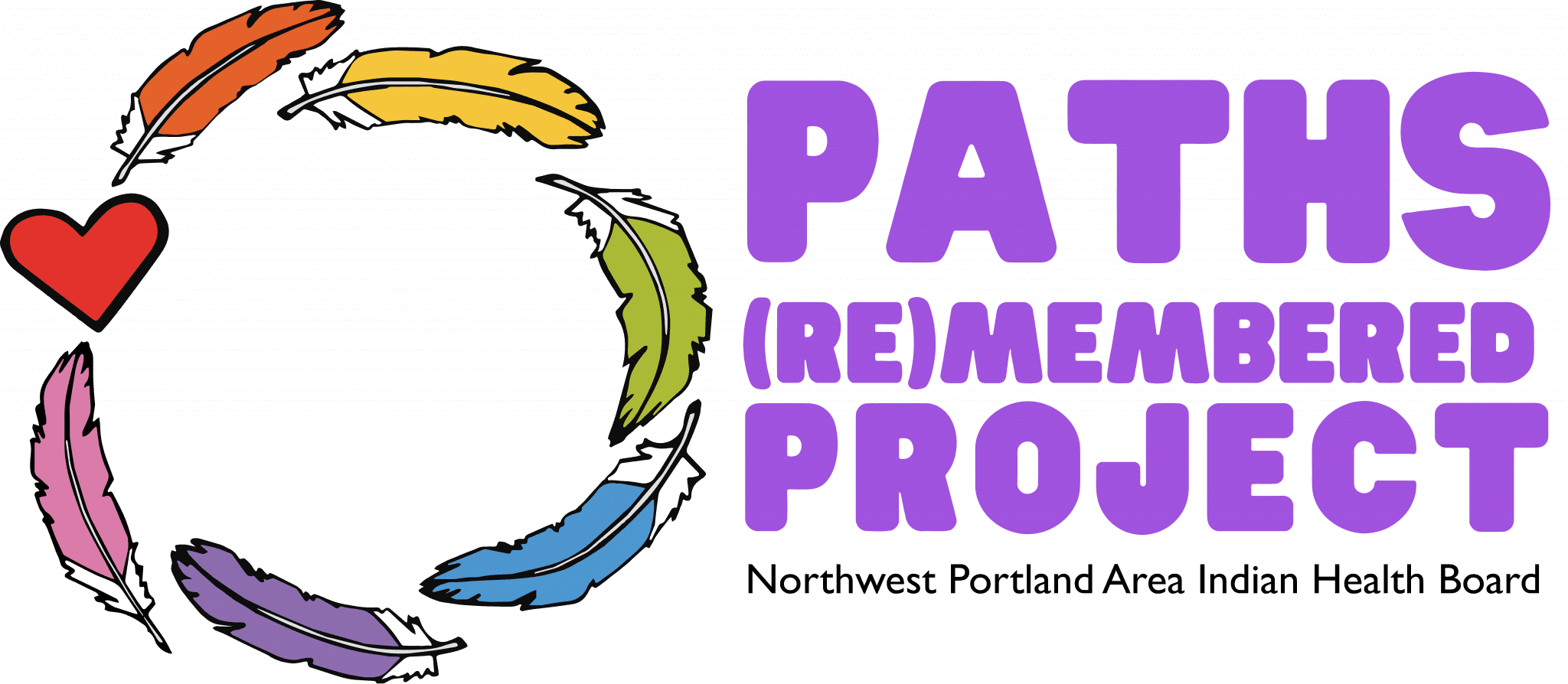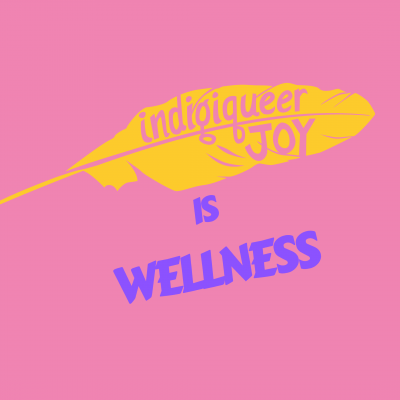Two Spirit & Fat: A conversation about self-advocacy and body sovereignty
Could you start by introducing yourselves?
Shilo: Sure. I am Southern Cheyenne and Arapaho and Scottish and Irish. And I live on Chinook and Multnomah lands 35 miles northwest of Portland. I am a fat activist. I have some disabilities, and I’m a trauma survivor. I have my own business doing consulting and training work with government agencies and other smaller nonprofits around trauma-informed care and liberation.
When talking about fatness, what language feels affirming to you?
Shilo: I’m a person who likes the word fat, as a descriptor. I hate the o-words. But lots of people use different language for their body-size. I think whatever works for folks is great. I’ve tried to use Cheyenne words and phrases. That’s one of the ways I like working with my ancestors. When I use Cheyenne words, it cuts through the garbage of colonization, the thickness of it—I think of almost like a brain fog. It can be really hard to find Indigenous words or phrases, but I think that language creates a different connection to my embodiment, reminds me that my embodiment comes from my ancestors and from the people around me I love. Having that understanding helps especially on days where it’s hard to move through the world, literally, with disabilities or with how I feel about my body and society. It gives me a little bit of a bubble, a barrier to the tidal wave of fuckery and harm. I remember my accountability and connection is to my ancestors, not to doctors or my parents or friends or society in general. My ancestors believe in me and love me for who I am, and have told me that I’m exactly what they want me to be. Those messages resonate with me and have helped me navigate the medical system, and even queer community. A lot of people will say, Oh, I love everyone, I’m into everyone. That’s not really true. There’s a lot of racism, there’s a lot of fatphobia. There’s a lot of people who don’t, who wouldn’t date a fat person.
Specific Indigenous traditions can help buffer all of that, reminding me that Two Spirit is about community, about service to my community. For Cheyenne Two Spirits traditionally when you take a lover you can give them a nickname, a token of love—a Cheyenne word or phrase that’s kind of raunchy and sexy. It’s considered a gift, an honor to get a nickname like that. One of the things I love is that some of our traditions are really serious, but then there’s these other pieces where it’s like ha, ha, ha, ha, ha.
How do you navigate clinics and healthcare settings as people who are fat and Two Spirit?
Shilo: I’ve done a lot of work in this area out of necessity. After I had a surgery on my leg, when I was in graduate school like six years ago, I had had some pretty nasty interactions with doctors and nurses. From that, I decided to create a statement. It’s a full four-page PDF that goes over my expectations for care from providers. It’s very clear about my identities, my pronouns, terms—like I don’t want them using the word obesity or talking to me about weight loss surgery. There are also questions: What are my skills, talents and resources? What are my health and wellness goals for myself? Those might include reconnecting with family members that I’ve been estranged from, because that does impact my health and wellness. (I really don’t like those terms, to be honest with you.) I’m very clear about boundaries: Do not talk to me about dieting, do not talk to me about weight loss surgery. Those aren’t a part of my practice. My ancestors do not want a perfectly healthy organ surgically removed or altered. I’ve noticed that if I say this is about culture, about being indigenous, that seems to help a bit. People get nervous, because of cultural competence. They don’t want to mess it up.
I’m a white-passing Indigenous person, who’s read as femme, so I can be a punk a bit easier than a lot of people. My expectation when I see a provider is that this is my body. I am a sovereign being and my ancestors are with me, and we are in collaboration. The provider has their own expertise and understanding. I have my expertise and understanding of my own body. We are on the same level. They are not better or more powerful than me. The other piece that helped me, and this is very queer, is thinking about the areas in my life where I really advocate for myself and bringing those into medical settings? So, I’ve started thinking: How do I top my primary care physician? That’s one of my skills. I can top people. I put myself in that top mentality before I go in.
The self-advocacy guide:


